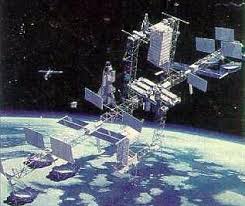
Introduction
The International Space Station (ISS) stands as a testament to human ingenuity and cooperation, representing a collaborative effort between five participating space agencies: NASA, Roscosmos, ESA, JAXA, and CSA. Orbiting Earth at an altitude of approximately 400 kilometers, the ISS acts as a unique microgravity laboratory that fosters scientific research, technological development, and international cooperation. With ongoing advancements in space technology, the ISS remains vitally important in preparation for future missions to the Moon and Mars.
Recent Developments
In recent months, significant achievements have been made aboard the ISS. In June 2023, NASA completed the successful deployment of new solar arrays that will increase the station’s power capacity, a critical upgrade intended to support upcoming experiments and maintain operational sustainability for lengthy missions. Furthermore, experiments focusing on human health, material science, and environmental studies are continuously being conducted, with results contributing valuable data that benefit life on Earth and provide insights for future deep-space exploration.
International collaboration has also continued to flourish, with teams from various countries working side by side aboard the space station. In August 2023, the joint Russian-American Soyuz spacecraft completed a mission that included crew exchange and vital supply deliveries, reinforcing the cooperative spirit that underlies the ISS program.
The Challenges Ahead
However, the ISS is facing numerous challenges. As older hardware deteriorates, the necessity for upgrades and replacements grows. In October 2023, ESA announced plans for a series of robotic missions aimed at servicing and upgrading the ISS systems, with an emphasis on enhancing safety and ongoing utility. Simultaneously, budget uncertainties may affect future commitments to the ISS, especially as nations start planning their own lunar missions.
Conclusion
In summary, the International Space Station represents a remarkable achievement in international collaboration for advancing science and technology. Its ongoing experiments and upgrades not only support current scientific endeavors but also pave the way for future explorations beyond Earth orbit. As global interest in space travel grows, the ISS will undoubtedly continue to serve as a key platform for researchers, fostering innovation and yielding discoveries that will benefit humanity as a whole. As we anticipate the next era of space exploration, the legacy of the ISS will endure, inspiring future generations of scientists, engineers, and explorers.



